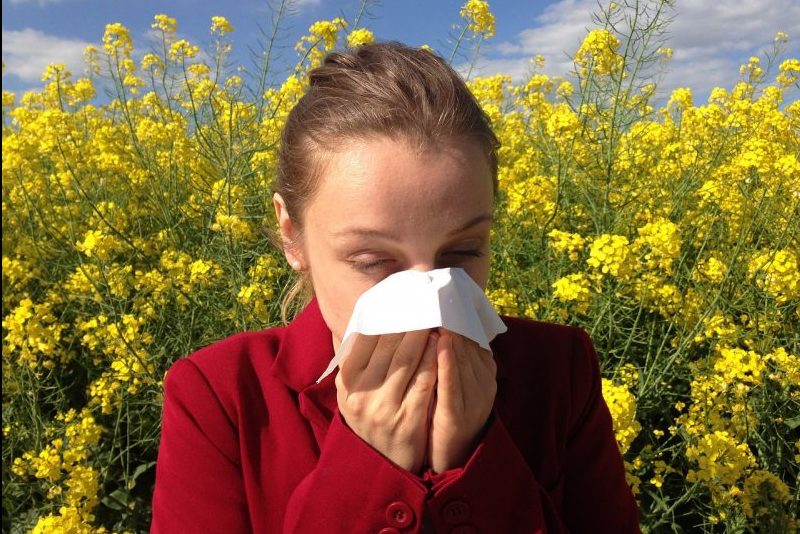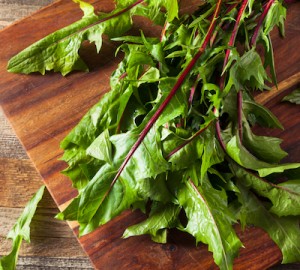It’s the time of year that brings on the sneezing, congestion, and itchy eyes for many.
In fact, according to the CDC, more than 50 million American now suffer from allergies each year (1).
While it’s daunting, it’s not hopeless.
If you suffer from seasonal allergies, there are some strategies you can use to reduce seasonal allergies. Some strategies actually reduce your reaction to allergens, and thereby help the actual problem. Others simply work to reduce your symptoms.
All of them are important. Here are 10 Natural Ways to Reduce Seasonal Allergies.
10 Natural Ways to Reduce Seasonal Allergies
1. Start with the strongest anti-inflammatory nutrient: Omega-3s from fish and fish oil.
To reduce whole body inflammation, take an omega-3 supplement oil daily or eat fatty fish regularly. If you’re able to eat 12 oz. of fatty fish per week, that’s great.
Otherwise, take a good omega-3 supplement every day.
Why?
Studies have shown that those with seasonal allergic reactions and asthmatic allergies actually have higher underlying inflammation even when they are not showing symptoms (2).
These results have lead experts to believe that reducing the underlying inflammation may improve asthmatic and allergic conditions.
Of course, if you are “aspirin-sensitive” or on blood thinners, always talk to your doctor before starting or increasing fish oil.
2. Reduce processed foods with high omega-6 fats.
As an opposite action to increasing omega-3 fats, it’s crucial to reduce omega-6 fats found in processed foods.
Omega-3 and omega-6 fats are antagonists.
While omega-3 fats reduce inflammatory factors in the body, omega-6 fats increase their production.
It’s not enough to simply increase omega-3s…you must also decrease omega-6s.
The fastest and easiest way to do this? Look at every single item you buy with an ingredient label, and avoid all products with soybean oil. Then, take it a step further and avoid all those with high omega-6s.
The full list and steps can be found here.
3. Take care of your gut health with probiotics and fermented foods.
While it may seem odd that your gut has anything to do with sneezing and post-nasal drip, probiotics have been shown to help those with seasonal allergies.
In fact, one study of 173 people who suffer from season allergies found that taking a daily probiotic with lactobacillus strains significantly improved their “quality of life” scores from baseline to peak pollen compared to a placebo group (3).
It is hypothesized that probiotics can improve the quality of life of seasonal allergy sufferers by increasing the percentage of regulatory T cells (Tregs) and improving allergen tolerance.
4. Take a daily dose of Raw Apple Cider Vinegar.
There are 2 ways raw apple cider vinegar can help:
- In lab tests, scientists have found that the bacteria in raw vinegar can actually improve immune factors and protect from an allergic reaction (4).
- Apple cider vinegar is a natural decongestant, and it causes your sinuses to drain when you drink it. While the relief is temporary, it is effective and reduces the risk of clogged sinuses becoming infected.
What’s more, unlike medication decongestants, you are not at risk of rebound congestion, which can occur with long-term use of decongestants and results in worsening symptoms.
How should you take it? ALWAYS dilute apple cider vinegar. Taken straight, it can damage your esophagus.
Instead, mix 1 Tbsp. apple cider vinegar, 4 oz. water, 1/2 tsp ginger, ½ tsp cinnamon, and stevia to taste. Take 2-3 times per day during allergy season.
5. Try all-natural nasal sprays.
At most stores and pharmacies, you can find nasal sprays with simple ingredients like baking soda, salt, and purified water.
These sprays flush out your nasal passages. When used a few times per day they can ease allergy symptoms, especially if you begin using it proactively before strong symptoms begin.
6. Keep your floors and counters as clean as possible.
Dust mites cause many allergy symptoms.
Dusting regularly, vacuuming and using a HEPA filter, and washing floors and surfaces regularly can help reduce seasonal allergies and symptoms.
7. Leave your shoes outside.
Shoes have a way of trapping pollen on them and then depositing it all over your floor surfaces if worn inside.
Instead, remove them at the door and leave them out.
8. Keep windows and doors closed.
Especially if you live in an area with high pollen counts, keep windows and doors closed.
Pollen blows around most in the Spring, and typically in the early hours of the day. Keep windows and doors closed to avoid pollens blowing in.side.
Instead, use an air conditioner if too warm. Make sure to change the old filters as they will most likely be full of dust, pollen, and mold.
Installing an air purifier with a HEPA filter will also help to remove allergens from the interiors.
9. After being outside, take a quick shower and change your clothes.
Clothes and hair are pollen magnets, so take them off and rinse as soon as possible!
Instead of dragging the pollen inside and sitting it in, shower and change.
10. De-Pollenate before bed.
Consider showering before bed, changing pillowcases daily, and sheets regularly. If you go to bed with pollen in your hair, it can stay on your pillowcase for days. Then, you’re essentially sleeping in pollen!
Keep these soft surfaces as clear of pollen as possible to get a good night sleep and wake up feeling better rather than worse.
Bottom Line
While there’s no way to completely avoid pollen and seasonal allergens, but there are steps you can take to reduce your reaction and symptoms. The key is to do them consistently.
This Spring and Summer, do what you can to reduce seasonal allergies and feel great!

















